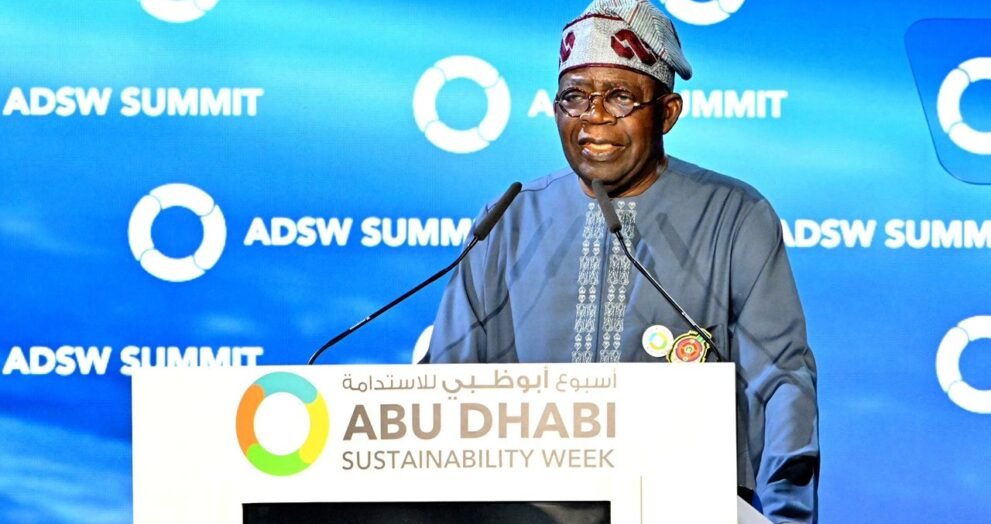LET OUR DISASTER MANAGEMENT NOT BE LOST IN POLITICS AND ELECTIONS.
We can address climate change crisis and disaster management system by ruthlessly enforcing the rules, investment in infrastructure and government entities responsible for restoring order during emergencies, engage citizens and then monitor and measure progress. Citizens must face each day understanding that catastrophic flooding disaster is the culmination of our choices and for there to be order we must be people of order. If there are no order, citizens must meet the source of disorder with urgency and immediacy. From my research, I have came to understand that humans when push comes to shoves will never not be humans. I also realise that It takes a lot of time to build a society that works and way less to see it destroyed by extreme weather conditions. It often starts with that neglected step of preparation for environmental protection, restoration and management. That is why I consider this illusion that there is something fundamentally different in the DNA of people in developed countries far from the truth. They just set their own priorities right and deployed resources where it affected them. For instance, flooding disaster happened in South Africa almost the same time Mokwa catastrophic disaster happened. While Nigeria was said to officially lost about 200 people, SA lost 49. The difference in both events was that in hours, the SA President was at the scene. That is a time tested social contract that is almost invisible between government and the people. It is not magic, it is consistency and that is where many leadership in developing countries fail. For disaster prevention and mitigation, developed countries deployed advocacy, rule of law, community sensitisation and outreaches and other such efforts to make the people understand the dire consequences of flooding disaster and tragedies of climate change. Amidst all these efforts, it remains a herculean challenge for our response agencies to do the simple things. They need to be aware that order during disaster and tragedies is more fragile and we must realise that, It depends on small and big choices made by the leadership in tough situations. It involves the choice to wait until disaster happens rather than adequately prepared for it. All these little acts are the scaffolding holding up what we call a functional disaster management system. Here is the reality, most people wont chose to remain in their ancestral homes if the government have lived true to citizens at the IDP camps nationwide. If people believe no one will remove them from IDP camps, they will prefer to remain in their localities and become victims of climate change crisis and flooding disasters. I have discovered that If there are no consequences for building on drainage channels, the entire cities become vulnerable when flooding happens. These is what the nation has in play and people should not be allowed to suffer from this disorder of others as humans always default to convenience when there is a thin line between order and chaos. There is common belief that government alone is responsible for making things work during disaster situations. This belief is incomplete if not erroneous as no government can sustain environmental protection and restoration without the cooperation of the citizens. The citizens are the ones who will inspire best behaviours in their localities because the best policies are only as effective as the willingness of the people to embrace and respect them. Without a doubt, government must lead, they must continue to invest in infrastructure, enforce regulations, create urban development that accommodates growing population especially in vulnerable communities.It is obvious from experience that disaster management system thrive when citizens take ownership of the public space; when government rules are regulations are respected and not negotiated, when disaster management system are routine approaches and not ceremonial. A working disaster management system is not just a bureaucracy but a cultural practice that reflects what the people value from their government during emergency situations. When we glorify short cuts, ignore corrupt practices and excuse incompetence, our disaster management system show it. It becomes a mirror during disaster events. Culture of preparation and response doesn’t change overnight but can change through education, policy and media because you cannot fix bureaucracies without fixing it’s culture. The planet is fragile and citizens must uphold it with strength. AIR VICE MARSHAL (RTD) AKUGBE IYAMUCONSULTANT, ENVIRONMENTAL AND CLIMATE CHANGE ANALYST PRESIDENT ASSOCIATION ENVIRONMENTAL PROTECTION AND CLIMATE CHANGE PRACTITIONERS You can follow me on Twitter X @iyamuclimatech1, Instagram iyamuclimatechange. You can send your views to iyamukenneth65@gmail.com and 07057447442( messages only)

































































































































































































































































































































































































































































































































































































































































































































































































































































































































































































































































































































































































































































































































































































































































































































































































































































































































































































































































































































